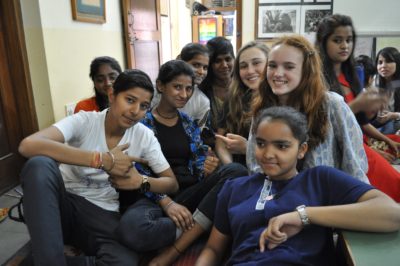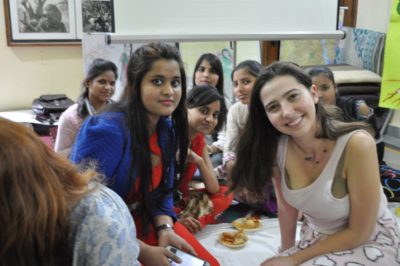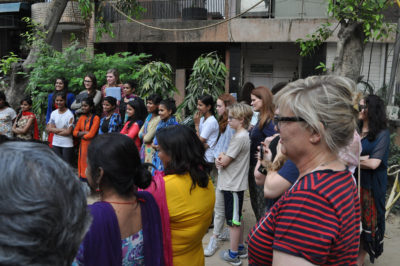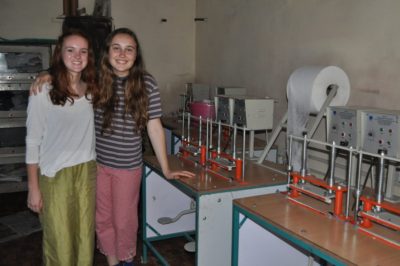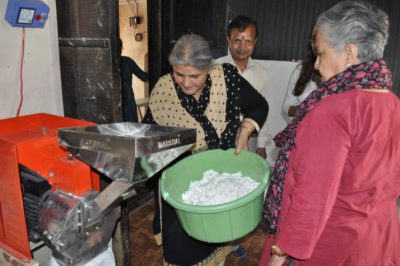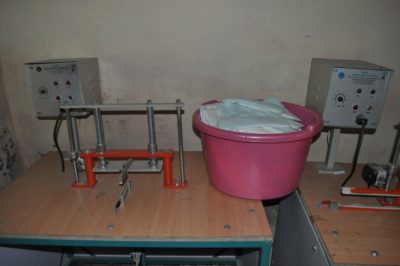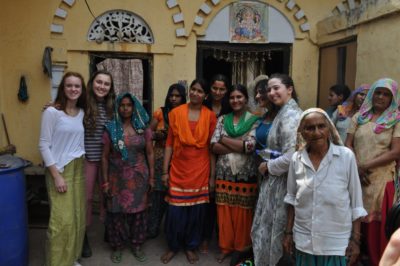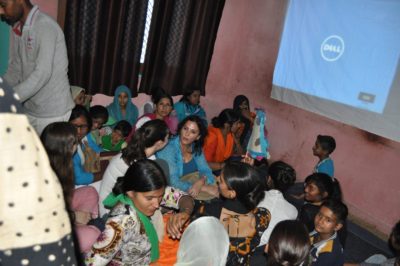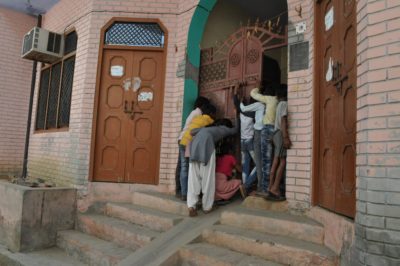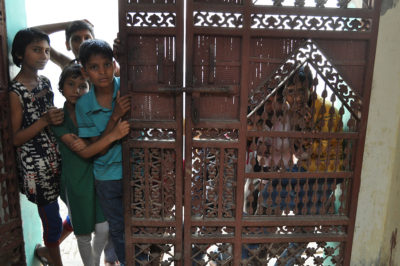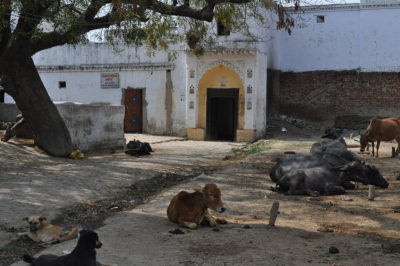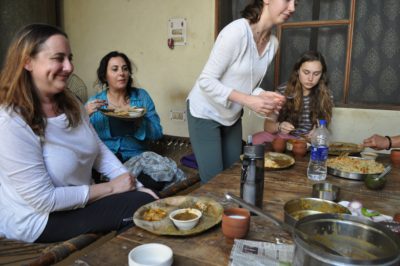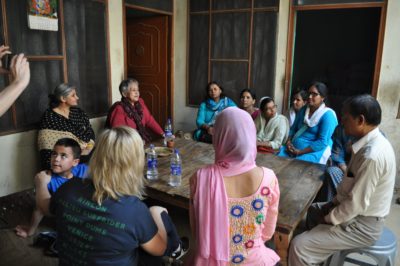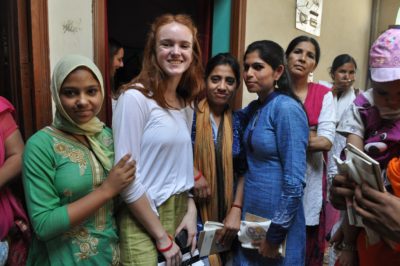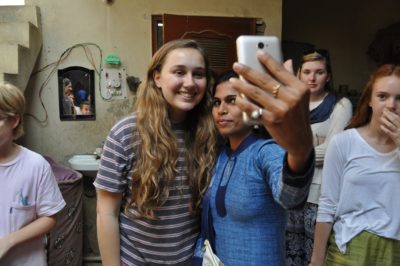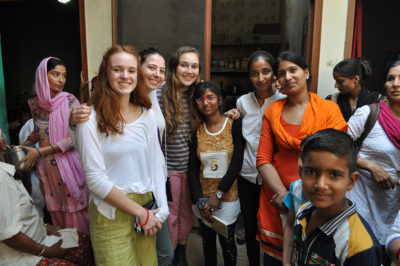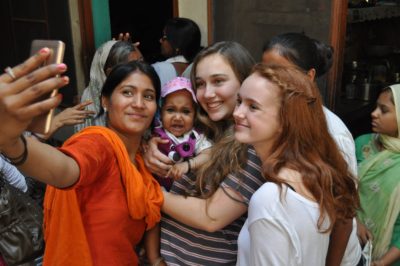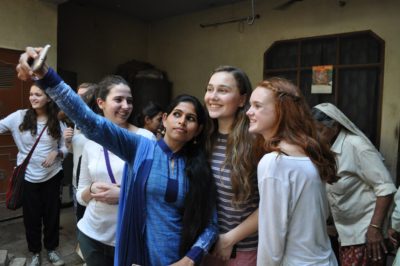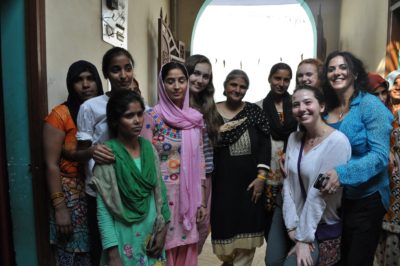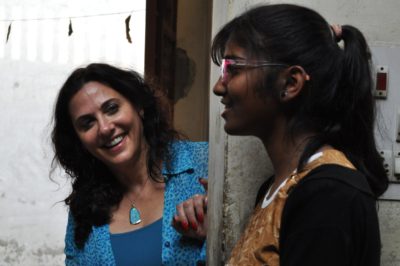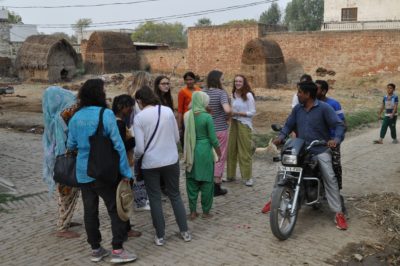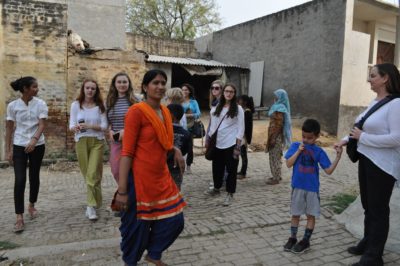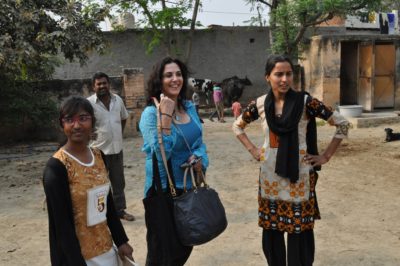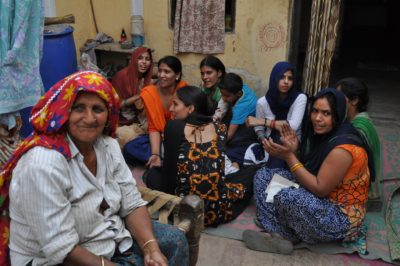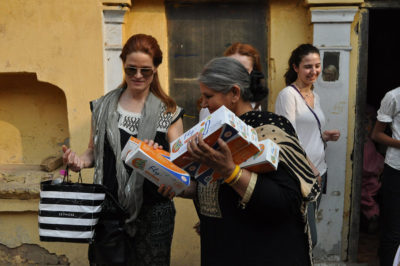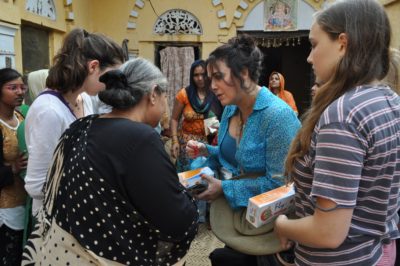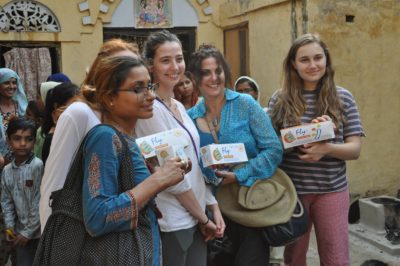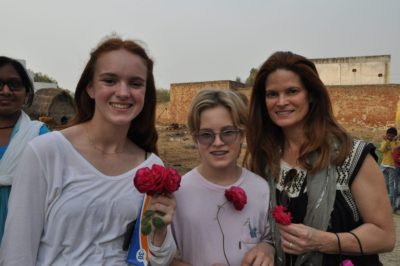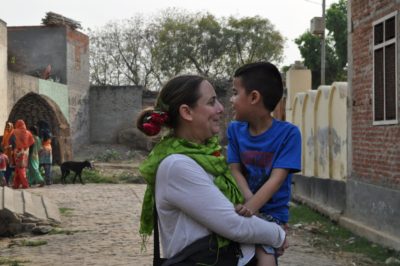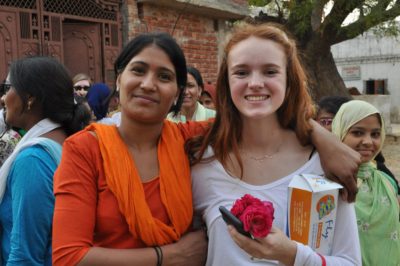RURAL EMPOWERMENT OF WOMEN: GLI IN INDIA
BY MASON ’21 AND CHARLOTTE ’18
After years of raising money to purchase a pad machine, a group of Oakwood students and faculty members of the Oakwood chapter of Girls Learn International (GLI) embarked on a journey to India.
Over the past six years, GLI has held bake sales and launched two Kickstarters, together raising 60,000 dollars to buy one of these pad machines for Kathikhera, a village outside New Delhi.
We were there to see the machine at work and share our documentary film with the girls who had been at the center of it all.
Melissa Berton, Helen Yenser ’13, Charlotte Silverman, and I spent two days of our trip in Mumbai, two days in New Delhi, and three days in Jaipur.
In Mumbai and Jaipur we walked around, learned about the rich history of India, and immersed ourselves in a culture completely different from our own.
Our most important days, though, were spent in Delhi.
Our first day in Delhi was spent at the Action India headquarters. There, we met with a group of girls who belong to a GLI chapter in Delhi.
When we arrived, we introduced ourselves to each other and spent some time getting to know one another.
We drank tea, laughed, and took lots of pictures together.
Young women who used to participate in GLI and who now attend a nearby college also joined us to present their inspiring play about sexual consent.
The next day we went with the Action India team to visit Kathikhera. About twenty women and girls, including Sneha, whose story takes center stage in our film, were there to greet us when we arrived.
We watched the documentary with them and they loved it!
We spent the rest of the day discussing further steps for the Pad Project in Kathikhera and beyond, spending time all together for an amazing meal in Sneha’s home and getting a tour of the village from a few of our kind co-workers and new friends.
GLI is an international organization dedicated to furthering the education of young women around the globe.
A lack of cheap and accessible sanitary products is one obstacle to education: when women and girls in developing countries are unable to afford necessary products such as tampons and pads, they often end up missing a significant amount of school every month, eventually falling so far behind that they have to drop out.
It costs the same amount to buy milk for a week as it does to buy pads for a week. When families are faced with this decision, they chose to buy milk because it benefits the whole family instead of only the girl.
Because girls don’t have pads, they turn to using ashes and rags, often causing infections.
A man named Muruganantham created a machine that makes affordable, biodegradable pads from locally sourced materials.
Beyond supplying girls and women with pads, it supplies a steady income and a source of independence to the women in the area who want to work on the machine.
This village has had an ongoing relationship with our partner organization, Action India, which works towards enhancing the participation of women as citizens to claim their rights and entitlements, to public health and civic services to better the environment and quality of life among the urban poor.
Just recently, Credit Suisse bank made a generous donation of 130,000 dollars directly to Action India.
With that money, Action India plans to improve the pad machine in Kathikhera with solar panels and other developments, and to continue to purchase machines for villages all across India.
With the money remaining from our campaign, we produced a 30-minute documentary (Period. End of Sentence.) to raise awareness for the issue and encourage pad machines as an effective step toward female empowerment.


